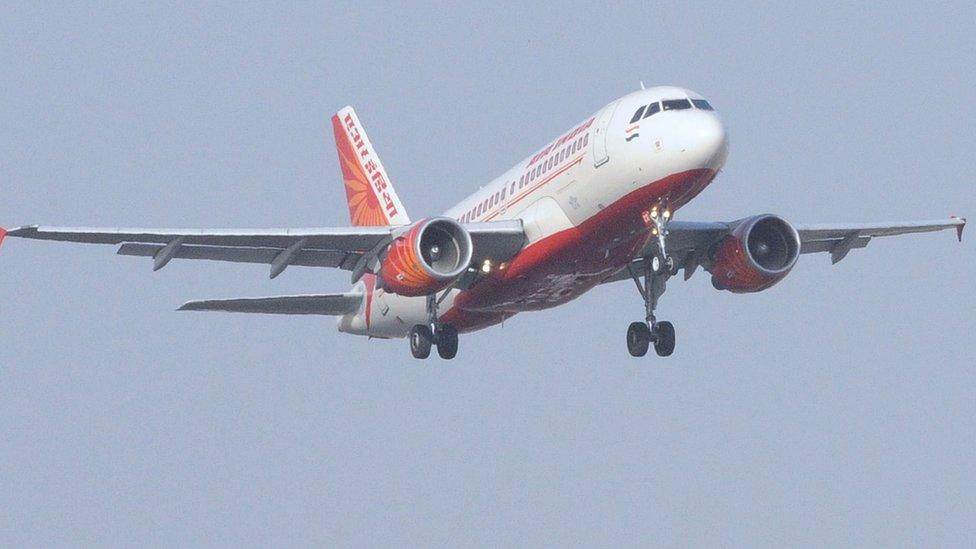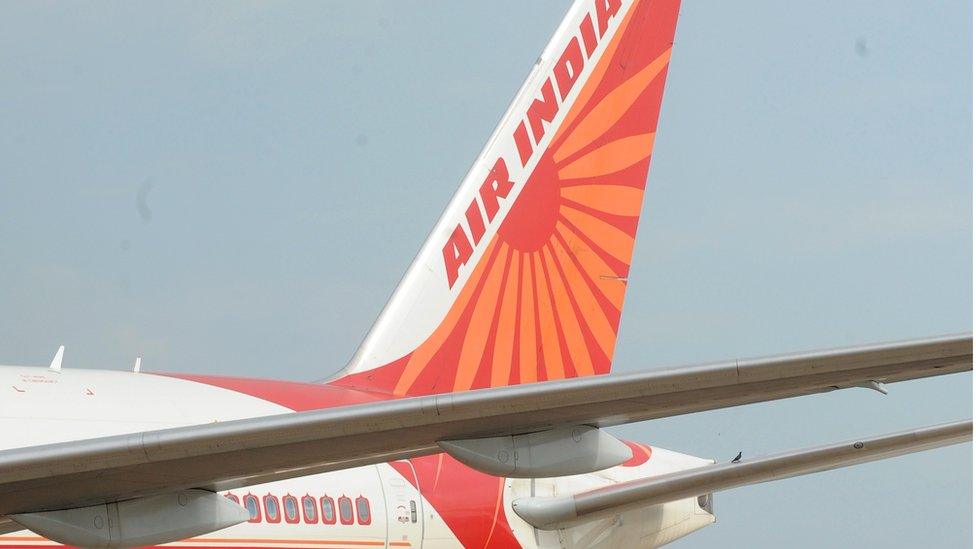Air India sale fails to attract buyers
- Published

India has said it will "rethink" its strategy after an offer to buy a controlling stake in national carrier Air India failed to attract any buyers.
"We were looking forward for better participation," Civil Aviation Secretary RN Choubey told reporters after a deadline for expressions of interest ended on Thursday.
The ministry thought the offer of a 76% stake would be "good enough", he added.
But experts say "onerous" government conditions put off potential buyers.
Among the terms of sale was the fact that any potential buyer would have had to take on the airline's 27,000 employees.
The fact that the government would have continued to hold a 24% stake in the airline and expected the buyer to abide by as-yet-unspecified guidelines to safeguard employee interest was also seen as having turned off potential buyers.
The airline has also not turned a profit since 2007, and any buyer would have to take on about $5bn (£3.6bn) of debt.
Mr Choubey said that the government would now rethink its divestment strategy, adding that it would act to minimise "any operational difficulties following the latest developments".
Analysts say the turn of events could deal a blow to Prime Minister Narendra Modi's claims to be a reformist leader.

Back to the drawing board
Devina Gupta, BBC News Delhi
On 15 October 1932, Tata air mail took its first flight from Karachi to Mumbai and Chennai (then known as Madras). This company later came to be known as Air India. The airline - before its nationalisation - was known for highly regarded for comfort and style in the sky. There are anecdotes about its founder, JRD Tata, being so attached to the airline he even cleaned a dirty toilet in the plane.
Can you imagine any minister from the government that now owns the airline doing that?
And that, more broadly, is the root of the problem. Air India needs more committed leadership.
Yet the government shows a strange unwillingness to "let it go". Under the current plan, the Indian government will continue to hold a 24% stake in the airline, which is counter-intuitive for the businesses that seek a free hand in turning around operations.
Perhaps it could learn from other governments that have done it in the past. British Airways and its "Putting People First" staff training project was a big success ahead of its privatisation in the late 1980s. And Germany's revitalisation strategies helped it fully privatise Lufthansa.

- Published29 March 2018
